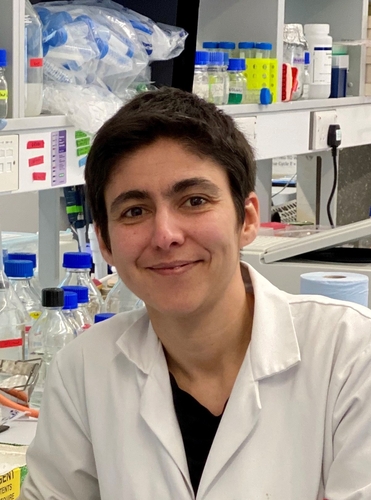Dr Candida Nibau
PhD

Post-Doctoral Research Associate
Contact Details
- Email: csn@aber.ac.uk
- ORCID: 0000-0002-0877-6001
- Office: 2.21, IBERS Gogerddan
- Phone: +44 (0) 1970 823229
- Research Portal Profile
Profile
I received my PhD at the University of Massachusetts, Amherst, USA, in 2005 on a thesis entitled 'The role of the Arabidopsis small GTPase Arac7 (ROP9) in hormone signaling', under supervision of Prof. Alice Cheung. In 2005 I moved to the UK for my first postdoctoral position to join the lab of Dr. Juliet Coates where I studied the role of Arabidillo proteins during lateral root formation in Arabidopsis. In October 2008 I moved to Aberystwyth University to join Dr. Glyn Jenkins' lab as a technician on the Barley Meiosis LoLa project. Since 2012 I have been working as a Post-doc in the lab of Prof. John Doonan.
Research
In order to survive in an ever changing environment, plants have to be able to monitor changes in the environment and adapt their development programs accordingly. I am interested in the signaling pathways triggered in the plant in response to external and endogenous stimuli and how these pathways affect plant growth and development.
During my PhD work I looked at the role of small G proteins as signal transducers to plant hormones that regulate many aspects of development. My post-doctoral work focused on some of the downstream molecules activated by specific developmental programs triggered during lateral root formation in Arabidopsis. In particular, I studied the role Arabidillo proteins during lateral root initiation and established that Arabidillo protein stability is regulated by proteasome-dependent degradation and this is important for its function during lateral root initiation. In the lab of Dr. Glyn Jenkins using cytogenetical techniques we developed a recombination map in barley. This allowed us to test the effect of different stimuli and the loss of specific meiotic proteins on the recombination process in barley.
My current project in Prof. Doonan's lab involves the study of cyclin-dependent kinases and how they affect male meiosis at higher temperatures. Male meiosis and recombination are very sensitive to temperature changes and this affects plant fitness and yield. Understanding the pathways behind temperature sensing and meiosis in plants will help to inform the breeding of crops better suited for an ever-changing climate.
